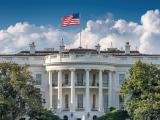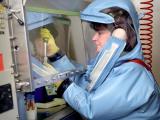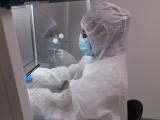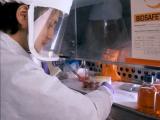Jul 1, 2005 (CIDRAP News) – The members of a new government board that will guide efforts to keep terrorists from exploiting the fruits of federally funded biotechnology research were announced this week by Health and Human Services Secretary Mike Leavitt.
In naming 24 people to the National Science Advisory Board for Biosecurity (NSABB), Leavitt said in a news release, "We all realize some research that results in new medical treatments, agricultural advances, and biodefense countermeasures could end up in the hands of terrorists who could twist it for their own purposes. The NSABB will provide a forum to help educate scientists on biosecurity and a means for the federal government to receive advice on how to advance scientific knowledge without compromising security."
Leavitt appointed Dennis L. Kasper, MD, of Harvard Medical School to chair the board. Kasper is director of the Channing Laboratory in the department of medicine at Brigham and Women's Hospital in Boston.
The board is composed mostly of academic researchers but includes several private consultants, one attorney, and the head of the vaccine department at a large pharmaceutical company, Merck & Co. Among the members is Michael T. Osterholm, PhD, MPH, director of the University of Minnesota Center for Infectious Disease Research and Policy (CIDRAP), publisher of this Web site.
The board's main tasks, according to information on the NSABB Web site, are:
- To develop criteria for identifying "dual use" research—legitimate research whose results could be misused for biological warfare or bioterrorism
- To develop guidelines for overseeing dual-use research
- To recommend a code of conduct for scientists and laboratory workers that can be adopted by federal agencies, professional organizations, and institutions
The board will also be asked to advise the government on guidelines for publishing information about potentially sensitive research, biosecurity education programs for scientists and lab workers, local review and approval processes for dual-use research, and other issues.
The board will not have authority to approve or reject specific experiments. But it will, on request, provide guidance to local "institutional biosafety committees" on specific experiments or classes of research that raise complex questions.
Announcement of the members was the prelude to the board's first meeting, held yesterday and today in Bethesda, Md. The meeting was open to the public and was also accessible over the Internet as a live webcast.
Today's session included a discussion on the chemical synthesis of bacteria and viruses, with J. Craig Venter, PhD, and other leaders in the field. Venter, founder of J. Craig Venter Institute, talked about the widespread availability of technology for synthesizing microbial DNA. "There are well over 50,000 DNA synthesizers in the world," he commented at one point, adding that he had seen several for sale on eBay for about $5,000.
Venter and other speakers said that unscrupulous researchers could synthesize pathogenic bacteria or viruses and that detecting and stopping such efforts would be very difficult. He advocated focusing efforts on developing medical defenses against such pathogens.
"If we're not concentrating almost 100% of our efforts on providing defensive countermeasures, we're missing the big picture here," Venter said. "Any viral agent can be produced. We should just assume that's possible and make sure that we have good vaccines and good vaccine development procedures to work against them."
Osterholm commented after the meeting that the presentations on chemical synthesis of new microbes showed that the field has huge potential for both good and ill.
"The implications for the tremendous good that can be accomplished in this line of research are mind-boggling," he said. "At the same time, the potential misapplication of this kind of research is frightening. So we have to be very careful not to throw the baby out with the bath water. We need this type of research. Therefore we must find every way we possibly can to prevent someone from using it for terrorism purposes."
As examples of the potential benefits of "synthetic biology," Osterholm said Venter described a project to develop bacteria that could remove carbon dioxide from the air and thus combat global warming. Venter is also working on bacteria that would produce pure hydrogen, which "could dramatically change our status as a petroleum-based economy," Osterholm added.
The National Research Council called for creation of a board like the NSABB in its 2003 report, titled "Biotechnology Research in an Age of Terrorism: Confronting the Dual Use Dilemma." As established, the board is somewhat different from what that report recommended, but it is intended to achieve the same goals, according to information on the board's Web site.
HHS officials first announced plans to establish the NSABB in March 2004. The estimated annual cost of operating the board is about $976,000, according to information on the Web site.
See also:
Jun 29 HHS news release with list of NSABB members
http://archive.hhs.gov/news/press/2005pres/20050629.html
NSABB site
http://www.biosecurityboard.gov/
Mar 4, 2004, CIDRAP News story "New board to advise on 'dual use' research, announces HHS"
Oct 10, 2003, CIDRAP News story "To block terrorists, panel calls for more screening of research


















